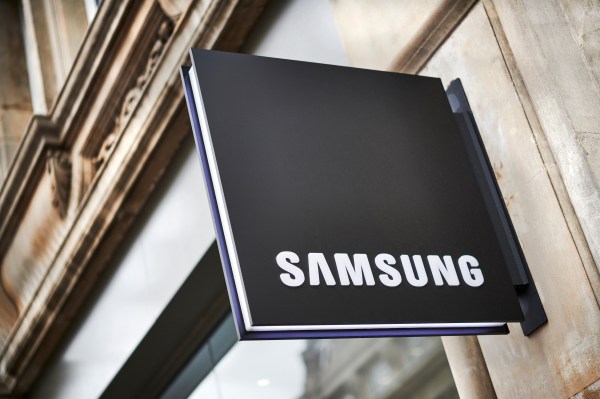Products You May Like
Chances are you mostly think of Samsung as a consumer-focused electronics company, but it actually has a very sizable B2B business as well, which serves over 50,000 large enterprises and hundreds of thousands of SMB entrepreneurs via its partners. At its developer conference this week, it’s putting the spotlight squarely on this side of its business — with a related hardware launch as well. The focus of today’s news, however, is on Knox, Samsung’s mobile security platform and Project AppStack, which will likely get a different name soon, and which provides B2B customers with a new mechanism to deliver SaaS tools and native apps to their employees’ devices, as well as new tools for developers that make these services more discoverable.
At least in the U.S., Samsung hasn’t really marketed its B2B business all that much. With this event, the company is clearly thinking to change that.
At its core, Samsung is, of course, a hardware company, and as Taher Behbehani, the head of its U.S. mobile B2B division, told me, Samsung’s tablet sales actually doubled in the last year and most of these were for industrial deployments and business-specific solutions. To better serve this market, the company today announced that it is bringing the rugged Tab Active Pro to the U.S. market. Previously, it was only available in Europe.
The Active Pro, with its 10.1″ display, supports Samsung’s S Pen, as well as Dex for using it on the desktop. It’s got all of the dust and water resistance you would expect from a rugged device, is rated to easily support drops from about four feet high, and promises up to 15 hours of battery life. It also features LTE connectivity and has an NFC reader on the back to allow you to badge into a secure application or take contactless payments (which are quite popular in most of the world but are only very slowly becoming a thing in the U.S.), as well a programmable button to allow business users and frontline workers to open up any application they select (like a barcode scanner).
“The traditional rugged devices out there are relatively expensive, relatively heavy to carry around for a full shift,” Samsung’s Chris Briglin told me. “Samsung is growing that market by serving users that traditionally haven’t been able to afford rugged devices or have had to share them between up to four co-workers.”
Today’s event is less about hardware than software and partnerships, though. At the core of the announcements is the new Knox Partner Program, a new way for partners to create and sell applications on Samsung devices. “We work with about 100,000 developers,” said Behbehani. “Some of these are developers are inside companies. Some are outside independent developers and ISVs. And what we hear from these developer communities is when they have a solution or an app, how do I get that to a customer? How do I distribute it more effectively?”
This new partner program is Samsung’s solution for that. It’s a three-tier partner program that’s an evolution of the existing Samsung Enterprise Alliance program. At the most basic level, partners get access to support and marketing assets. At all tiers, partners can also get Knox validation for their applications to highlight that they properly implement all of the Knox APIs.
The free Bronze tier includes access to Knox SDKs and APIs, as well as licensing keys. At the Silver level, partners will get support in their region, while Gold-level members get access to the Samsung Solutions Catalog, as well as the ability to be included in the internal catalog used by Samsung sales teams globally. “This is to enable Samsung teams to find the right solutions to meet customer needs, and promote these solutions to its customers,” the company writes in today’s announcement. Gold-level partners also get access to test devices.
The other new service that will enable developers to reach more enterprises and SMBs is Project Appstack.
“When a new customer buys a Samsung device, no matter if it’s an SMB or an enterprise, depending on the information they provide to us, they get to search for and they get to select a number of different applications specifically designed to help them in their own vertical and for the size of the business,” explained Behbehani. “And once the phone is activated, these apps are downloaded through the ISV or the SaaS player through the back-end delivery mechanism which we are developing.”
For large enterprises, Samsung also runs an algorithm that looks at the size of the business and the vertical it is in to recommend specific applications, too.
Samsung will run a series of hackathons over the course of the next few months to figure out exactly how developers and its customers want to use this service. “It’s a module. It’s a technology backend. It has different components to it,” said Behbehani. “We have a number of tools already in place we have to finetune others and we also, to be honest, want to make sure that we come up with a POC in the marketplace that accurately reflects the requirements and the creativity of what the demand is in the marketplace.”
